- Home
- Bill James
Full of Money Page 4
Full of Money Read online
Page 4
Tasker had not been killed in the playground. That happened somewhere else and the body arranged on the slide at night after the gate lock to the playground was picked. Did this location, this careful, grotesque placement have any special meaning? Did it say something about why Tasker had been beaten before the bullets? Was the message that Tasker had childishly imagined he could do an exposure piece on the firms and should therefore be presented, slaughtered and bruised, in a juvenile, six to fourteen, playground? And the slide? A devious drop down and down to elimination from his cocky reporter’s nosiness?
Gerald quite often had decent moments. Immediately after the discovery of Tasker’s body, he’d seen that Esther was exceptionally shaken by the circumstances of this death, and monstrously flippant disposal of the body, and for a time shelved his egomania and grew considerate, kindly, tender. Yes, she’d admit he could be like that now and then. Hardly ever did he fail Esther when he judged her to be genuinely needy. And, occasionally, he could maintain such warm thoughtfulness for quite an impressive while. Hours.
This afternoon, Esther stayed outside the playground, her eyes directed at the slide. Uselessly directed. All she’d see was the empty chute, no late pointers. On the morning he was discovered she’d had the call at seven forty a.m. and arrived just after the Scenes of Crime team and before the tenting. She could still call up the sight of Tasker, flat on his back about halfway down, each arm over the side, perhaps to anchor him and stop the body slipping further, possibly off the chute altogether. The people who brought him here wanted a better show than a crumpled body on the ground at the end of the slide. Did they intend Tasker to look like a delighted and excited child as the slope took charge? But, in fact, because of what had happened to his face elsewhere, there could be no semblance of little-boy excitement and delight on it.
Now, as Esther zombie-stared, a park keeper came to end-of-day lock the playground gate. He didn’t seem to recognize Esther. Maybe he’d been off when the body was found, and hadn’t seen her around here then.
‘It’s perfectly all right in there now, you know, lady, if you want to bring your children along to the rides and so on. I can understand the . . . the, well, queasiness, but it’s all been thoroughly spruced up. Not a trace of . . . of anything.’
‘Thanks.’ She went back to the car.
At home, Gerald was accentuating the negative: ‘I don’t know about this TV thing, Esther. I’ve seen the programme once or twice, haven’t I? It has that Rex Ince on it often. Cambridge – a don. He behaves as if he thinks the whole damn thing should be about him, not the topic they’re discussing.’
A rival. ‘Does he, dear?’ She’d like to keep matters still mild this evening, no knockabout. Perhaps he’d prefer that, too. If he was going on television he wouldn’t want old scars evident. And she’d seen enough scars lately.
Gerald imitated a quibbling donnish voice: ‘“Oh, yes, William Boyd can describe room interiors well enough in his novels, but let me recount what happened to me one day in Tasmania.” That’s fucking Ince. Do I want to line myself up on the screen with such people?’ Yes. But Esther didn’t say so. ‘And then the chairman,’ Gerald added. ‘The usual chairman. Bale? Rupert Bale? One of the people who drinks with us works in television, though for a different company, and says this Bale is in a somewhat stressful situation involving Adrian Pellotte – Baron Pellotte of the Snorts. Bale and Pellotte’s daughter have something going, apparently. Possible difficulties there. Bale’s from the wrong estate.’
‘Temperate not Whitsun?’
‘Like that. What bothers me is that if this Bale has such worries he’s likely to be a bit all over the place as chairman of a programme. No control, I mean. So, panellists screaming at one another. A noise competition.’
‘You could hold your own, Gerald.’
‘Unwise, inappropriate, for me to be seen in something chaotic and shambolic like that. I’m a name, Esther, a reputation. I have to guard these. I can’t allow myself to be yelled at by a twerp like Ince. It would confuse and upset those who see me, know me, for what I am.’
‘Many of those.’
‘We’ll watch the next damn programme in the series before I decide anything. That is mere good sense, isn’t it? And how was your day?’
‘Admin chores.’
‘Tasker?’
‘Of course, I have people looking at that.’
‘I gave my own mind to it for a while.’
‘Did you, Gerald?’
‘I wonder if you’ve thought about the significance of the playground.’
‘In what sense?’
‘It’s a place for children, isn’t it?’
‘Certainly.’
‘Tasker gets arranged there, like a child. Are they telling the world he was stupidly, childishly naive? Perhaps this is not the kind of insight that would come to police officers. It’s a revelation from a different kind of mind. Not necessarily a better kind of mind. One doesn’t claim that. No, indeed. Different. An artist’s mind. A mind that is used to dealing with the thematic, the intrinsic, rather than the obvious – a mind that can hear the unspoken – the unspoken but very present. Look, I don’t mind if you present this idea as your own to colleagues, Esther.’
‘That’s a true kindness, Gerald.’
Four
Larry Edgehill thought things could get worse – knew things would get worse, had already started to get worse. On-screen – on-screen! – on-screen Priscilla Sandine, a panellist, say twenty-six or -seven, puts all her big, insistent and vibrant charms towards Rupert Bale, chairman for the night, and, God, does he respond!
Well, fine in different circumstances and with different people. But . . . But! But Rupert Bale is apparently promised, or something like that, to Dione Pellotte. Here, in view of millions, on Larry’s programme, A Week in Review, Sandine and Bale ferociously sparkle and brilliantly, almost rampantly, interlock. Adrian Pellotte will not care for this, and, of course, he’ll be watching. Isn’t the programme a favourite of his and Dean Feston’s – their staple? And probably even more so now, because of Dione’s link with Rupe. Link? Would tonight’s show make Pellotte wonder how reliable that link was, and how reliable was Rupe? It could be very bad when Pellotte didn’t care for something and when he began to wonder. Think of the journalist, Gervaise Manciple Tasker, who’d probably offended Pellotte by poking into his life – possibly including Dione’s life – now dead in undetermined circumstances. Some of the circumstances. Not the playground slide.
A Week in Review always went out live. Tom Marland usually directed, with Edgehill in overall charge. In the hospitality suite, pre-programme, Edgehill had noticed Rupert Bale on the other side of the room, alone and with a glass of what might be orange juice. He looked troubled. If difficulties with Adrian Pellotte hovered anyone might look troubled.
Pellotte had been a frightener for years. Since the death of Tasker his name commandeered even stronger scare elements. True, the death, as far as Edgehill knew, had never been officially connected with Pellotte, although gossip said two of his people – Dean Feston and a woman called Cornish – were hauled in, then released. Official connections were not the only ones. How about unofficial? How about guesswork? How about wise suspicion?
So, did Pellotte difficulties hover over Rupe? Perhaps, after all, Pellotte would grow to like the notion of his daughter partnered by a television star, even a television star who looked like Rupe and lived on Temperate. Perhaps, yes. Perhaps. There’d better be no messing with Dione by Rupe, though. And Pellotte and Rupe might take different views on what amounted to messing.
Would Pellotte and Dean have a ‘note’ on Bale? This would probably be a big priority when a man started something with Pellotte’s daughter: one of Dean’s top-grade fact trawls. Edgehill wondered whether he, himself, looked troubled, following the Gideon ambush. It was frightening that they had a ‘note’ on him, though from ‘just a basic fact store’. For Bale there must also be the usual anxieties and t
ensions about running the show. A couple of the newspaper critics had savaged him lately. That wouldn’t do his nerves or his mortgage chances any good either.
Even before the broadcast it had worried Edgehill to think of Pellotte and Dean Feston watching A.W.I.R. together tonight. Pellotte’s house? Dean’s? Would anyone else be present? The daughter, proud of her alleged beau? Pellotte’s wife? Members of Dean’s family? Edgehill had a notion he’d heard Dean was divorced. There’d be big attention on Rupe if Udolpho had things correct, and Udolpho generally did. At moments during the Gideon confrontation Edgehill had felt Pellotte and Dean Feston spoke as if they owned the programme, the way they owned Whitsun.
In Hospitality before the show, Edgehill had glanced back towards Bale and the orange juice. Priscilla Sandine was talking to him. It would be her first appearance on A Week in Review. She was smartly got up in what looked to Edgehill like some kind of white jump suit to low calf length, and a black blazer. Her short fair hair had been given a sort of close, spiky, zigzag cut. Her shoes looked pricey – black, high-heeled but not absurdly. Although panellists had to dress their top halves all right, shoes didn’t normally get much camera, and those who spent big on them just the same must be financially all right. That sort could be a fucking pain. They weren’t desperate for money, so they might act maverick.
He didn’t know her very well. Naturally, he’d done the greetings when she arrived, and during those few moments was aware of a very strong Sandine sexual force, though not necessarily meant for him in particular: more general, more scattergun. As he’d watched her and Bale later, he saw that Rupe, also, felt this power play fiercely and promisingly on him. He perked up notably, smiled, shifted about on his feet, obviously trying to respond, though Edgehill couldn’t hear what was said, because of distance and the all-round talky-talky din. At that stage, pre-studio, Edgehill could hope that this apparent instant steaming rapport would not get carried over too damn hot to the actual broadcast, and to the screen, watched in whichever venue by Pellotte, Dean and kin.
This hope died. The actual steaming rapport between them in the broadcast . . . steamed. And the trouble was that, obviously, it would look to anyone impartial, or partial in the way Pellotte and Dean would be partial – yes, it could look as though Rupe might not keep himself exclusively for Dione Pellotte. Her father would not like this, and nor would Dean. Based on that Gideon exchange, Edgehill thought Dean could be very dutiful and slaughterous in the interests of Pellotte’s daughter. For Dean, the words ‘Pellotte’s daughter’ might have holiness, and he’d be ready to wipe out anyone who failed to show them proper reverence, or seemed to: for instance, Rupe Bale doing lust exchanges with Priscilla on fucking TV – well, not quite fucking, but in the vicinity.
Early drinks in Hospitality had to be the right amount to loosen performers up, without making them rat-arsed and incoherent. Too little meant the panellist stayed pedantic, dull, mealy-mouthed, clichéd, idée fixée. Too much . . . Oh God, too much could bring blather even woollier than the standard blather of an arts programme. There might be physical threats; cursing; walkouts; the disintegration of basic grammar, syntax and word forms; spittle. Edgehill had wondered whether Priscilla Sandine was alcohol-powered now and, if so, would top-ups make her more vividly and engulfingly hormonal later?
The company had brought Edgehill over from Sport to give to arts what they called ‘an emphatic yet wise popularity’. After all, TV soccer kept its hold on supporters. Now, very, very now, he wanted Sandine at the right tipple level to help keep a wise hold on A.W.I.R.’s bit of audience, ‘right’ meaning chirpy, but not hungrily homing in on Rupe’s zipped bulge.
This evening, they’d discuss an exhibition of Far Eastern floral art at the Whitechapel Gallery; The Royle Family, a BBC satirical TV programme; a new Abel Vagrain novel, The Insignia of Postponement; and a revival of an Auden-Isherwood play, On the Frontier. Heavyish? So, before the On Air light glowed, trickle the correct number of liveners into the panel gaggle. A live show got liveners. Until the Sandine treatment, Bale had looked as if he needed a livener. But Rupe never did touch alcohol before a programme. Even a mouthful made him slurred.
Nellie Poignard, the burly, energetic, intuitive, cheery head of News and Current Affairs, had looked in to Hospitality before the programme on a brief visit. She held a glass of gin and bitters.
‘How are things in the homeland, Larry?’ she asked.
‘Whitsun? Serene.’
‘Something terrible is going to break on the estates, I know it. Oh, we get news stories all right from Whit and Temperate Acres, but I constantly feel we’re only nibbling the edge.’ She sipped.
People from other departments often appeared for a free drink or two before the programme, and sometimes Edgehill also invited prospective panellists to come and acclimatize themselves. ‘What am I missing, Larry?’ she said. ‘You’d know things from the inside.’
‘What things?’
‘Things.’
‘I commute from and to, and that’s about it,’ Edgehill said. Or this was how he wanted it. The kerbside meeting with Pellotte and Dean didn’t add up to news – the kind Nellie understood. Nor did rumours from Udolpho.
‘Occasionally, I just drive about on both estates, no real objective, no purpose, Larry, but trying to absorb a bit of the atmos, the undercurrents, the omens. Something’s hatching. Something’s going to happen. We’ve seen turf battles, like the one where dear Gladstone Milo Naunton died, leaving poor Bert Marsh widowed. There’ll be more. Ordinary people might get caught up.’
‘Apocalypse not quite now?’
‘Bad. Yes, it looks calm on both estates, I admit. Horribly, falsely calm. I might see the famous BMW going about its happy, time-honoured business, reg ADP 12, celebrating Adrian David Pellotte’s ownership, but also his fandom of the twelve Anthony Dymoke Powell novels in A Dance to the Music of Time. Dean Feston will usually be at the wheel. He’s had a long out of clink spell.’
‘Disappointed? No news interest?’
‘They follow their undiminished, undiminishable, dirty trade: delivering, collecting, punishing. In a different era these people would have been bank robbers. Drugs is safer, more profitable. Stuff goes up by a factor of what – 150, 160 by the time it’s on the street in Britain from Colombia? Margins so huge it doesn’t matter when they lose a stash through raids and seizure. If the police hit the luxury side, the trade goes downmarket for a while to the cheap, bulked-up additive stuff – more boric acid or hydroxyzine or tetramisole. And vice versa. Importers and wholesalers respond to fluctuations like any good entrepreneur. The traffic’s unstoppable. They simply collect. Their minions do most of the risky stuff.’
‘The barons have time to pop up to London Retrospectives.’
‘They do that? Of course, they can occasionally turn brutal themselves. Think of Tasker. Self-protective.’
‘Nothing’s proved there, I hear.’
‘Nor will be. They know how to arrange that.’
‘Arrange?’
‘Fix. And, listen, Larry, last time I saw Pellotte and Dean they were near your place,’ she said.
‘Yes?’ He thought he kept this sounding reasonably unruffled, despite feeling reasonably ruffled. ‘Bell Close – that’s you, isn’t it?’ she asked. ‘The car sort of dawdling, surveying, casing.’
‘They get about.’
‘Do they bother you?’
‘They probably don’t know me, or anything about me.’
‘No? Really?’ Perhaps she’d heard about the Gideon road encounter. Wasn’t it her job to hear interesting points from Whit, and from everywhere? ‘And then this murder – the reporter.’
‘He didn’t live on one of the estates, did he?’
‘No, but he was sniffing about on both, so it’s said. Provocative, Larry.’
‘Don’t your people sniff about on both, too?’
‘We know the protocols. It looks as though he didn’t.’
Nellie edged away.
A girl from make-up had taken Rupe Bale back to their room for some adjustment to his get-up, hair or complexion. Priscilla Sandine, journalist, would-be film-maker, was suddenly alone. Edgehill had gone across to her. When she spoke it scared him. ‘What do you think, Larry? I was just asking Rupert – why don’t we hear what happened afterwards to the Italian waiter in The Godfather.’
‘The Godfather? A waiter? Afterwards?’ Larry said. God, was she sozzled already? He might not want talk here in Hospitality about topics due on the programme later in case they grew stale, but The fucking Godfather, a twenty-five-year-old film and discussed over the decades inside out and back again?
‘Yes, afterwards,’ she said. ‘Michael Corleone shoots the police chief and the Turk while they’re in a restaurant. A waiter served them. What happened to him later? We demand a continuance.’
Her glass was not completely empty, but more empty than full. Enough? As to waiters, Edgehill knew he must get an immediate signal to Sacheverell Biggs. Sachev, from catering, had been doing arts hospitality for years, and Larry counted on him to judge when a refill for a guest’s glass would be OK. Also, though, to judge when it might be catastrophic for a performer.
Sachev sometimes stood behind the small hospitality suite bar near the wall telephone, and sometimes circulated with bottles on a tray. He was moving about now on the other side of the room. Larry must get a clear, downright eye message to him: ‘Dodge Priscilla Sandine.’ A feeling of responsibility for others was very strong in Edgehill. It would be neglectful and cruel to expect Rupe Bale and the others to cope with Sandine drunk on a live show. Keep her from the drink – from any further drink.
But Sachev had finished with the people over near the door and stepped towards Priscilla and Larry, the Glenlivet in pale, ample, friendly readiness on his tray, plus companion supplies. He turned his head aside for a second to pour for someone else, and broke eye contact with Larry. Then Sach came on. Larry sent him the NO BLOODY MORE FOR HER look. Too late. Much too damn late. Sachev certainly did finally note and totally understand Larry’s order. By now, though, for Sach not to replenish Sandine’s almost empty glass would be blatantly rude, an anti-hospitable snub, particularly as the almost empty glass got shoved towards Sacheverell in Mohammed-Ali-style, powerful, short-arm jabs; like what-the-fuck-fucking-well-kept-you-sonny-boy? She wanted what she wanted also from The Godfather – a continuance.

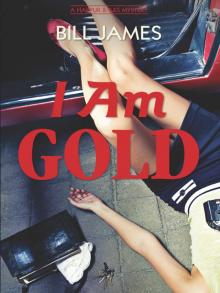 I Am Gold
I Am Gold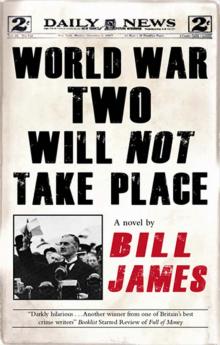 World War Two Will Not Take Place
World War Two Will Not Take Place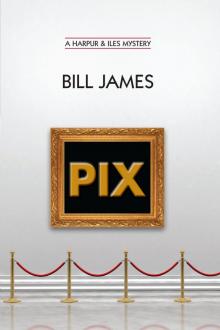 Pix (Volume Book 24) (Harpur & Iles Mysteries)
Pix (Volume Book 24) (Harpur & Iles Mysteries)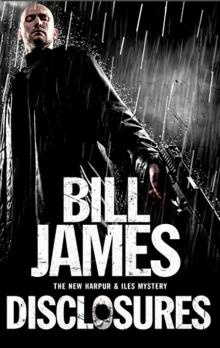 Disclosures
Disclosures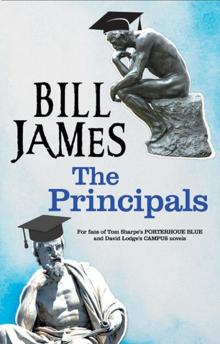 The Principals
The Principals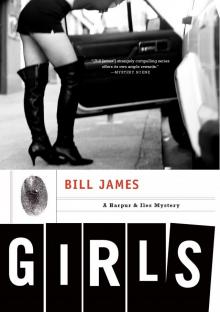 Girls
Girls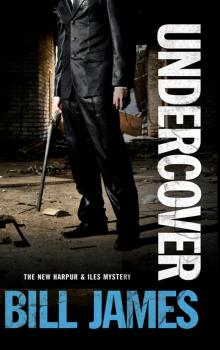 Undercover
Undercover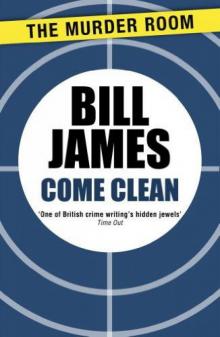 Come Clean (1989)
Come Clean (1989)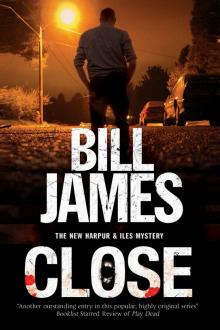 Close
Close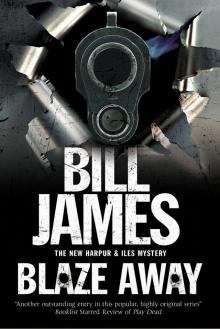 Blaze Away
Blaze Away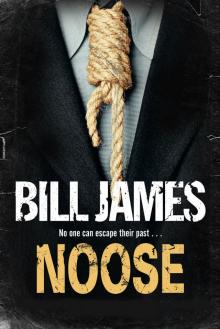 Noose
Noose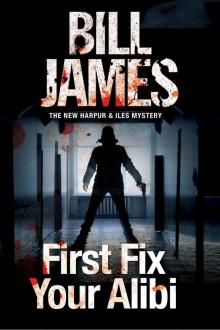 First Fix Your Alibi
First Fix Your Alibi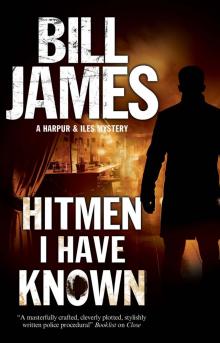 Hitmen I Have Known
Hitmen I Have Known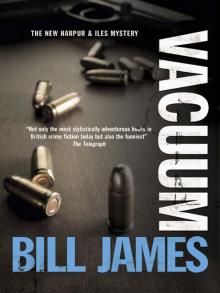 Vacuum
Vacuum Play Dead
Play Dead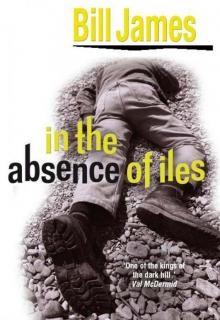 In the Absence of Iles
In the Absence of Iles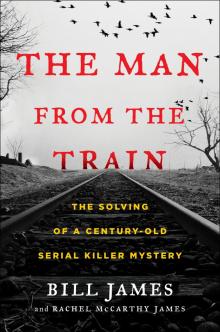 The Man from the Train
The Man from the Train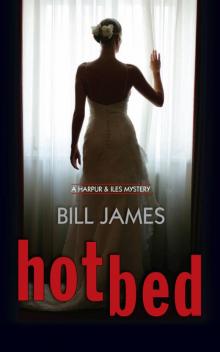 Hotbed
Hotbed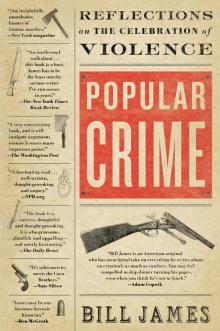 Popular Crime
Popular Crime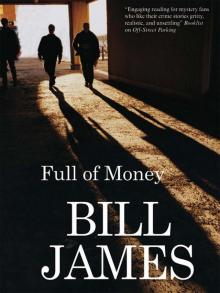 Full of Money
Full of Money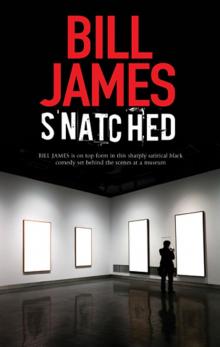 Snatched
Snatched